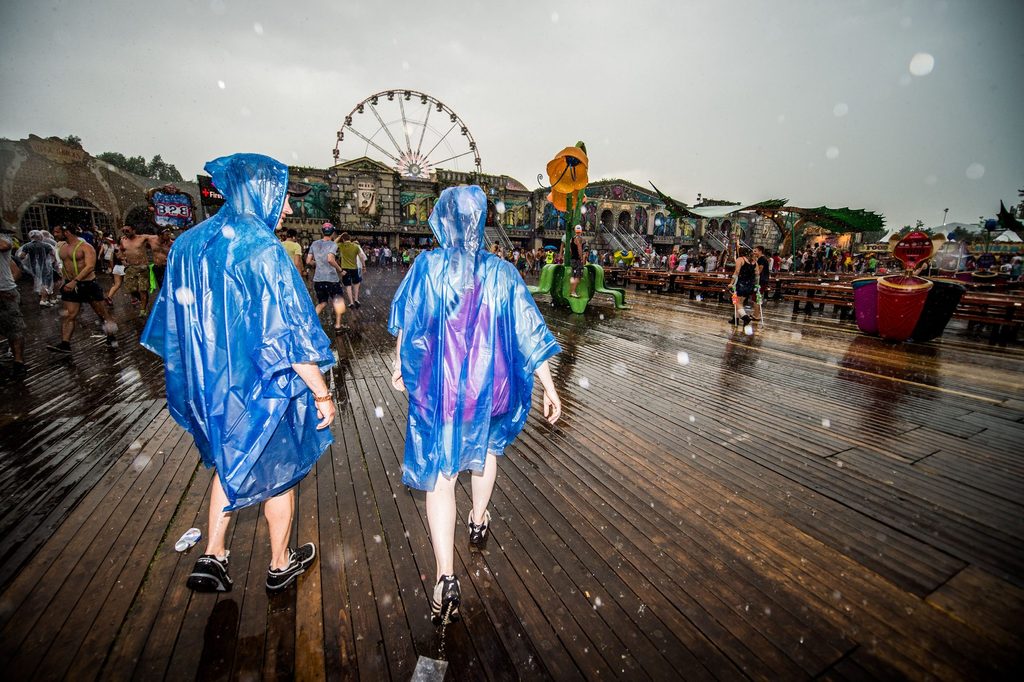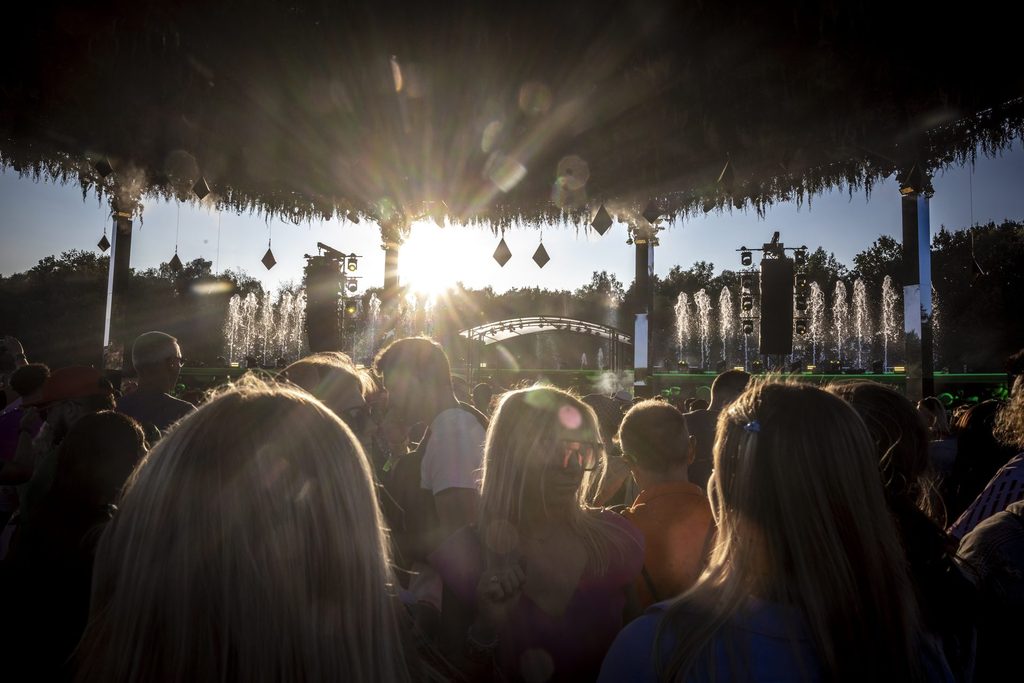The biggest electronic dance music (EDM) festival has a reputation for extravagance, going overboard with stage design, lighting and fireworks to create a spectacle like no other. But the hundreds of thousands of participants who descend on the Belgian town of Boom are far from guaranteed a dry party.
With Tomorrowland's second weekend forecast to be just as wet and unsummery as its first of this year, umbrellas and ponchos are recommended, though organisers have in years past looked to more radical measures to ensure good weather.
Years ago, Tomorrowland used hail cannons – a machine often used by fruit and wine growers to protect their crops – to promise its People of Tomorrow nothing but sunshine and blue skies for their weekend-long rave. The effort has become something of a legend at festivals, testament to how far organisers are willing to go to ensure the best event.
When questioned about the devices, Tomorrowland spokesperson Debby Wilmsen told The Brussels Times that their use has been discontinued. "We have not been using those cannons for about ten years. However, we do have a team of weather experts on site, who monitor the situation closely throughout the duration of the entire festival."
'No significant difference'
At the time, the organisation was willing to try the cannons, Wilmsen explained. As thunderclouds approached, the devices were supposed to counter hail formation by sending shock waves into the clouds at ten-second intervals. The ultra-high bangs they emit are said to either disrupt the growth of hailstones or the buildup of the hail cloud itself.
But the festival received a lot of criticism for using the expensive method (the cannons cost around €30,000) with no scientific proof that it worked. "That's the reason we stopped using them and instead decided to invest in other things."
Hail cannons are not new: over 100 years ago, they were already used during storms in Europe. In the early 20th century, tests were carried out in Austria and Italy for three years with and without a cannon. At the time, the Italian Academy of Sciences concluded that "there was no significant difference in hail damage between the protected and unprotected areas."

Rain during the second day of Tomorrowland in 2014. Credit: Belga/Jonas Roosens
The position of the World Meteorological Organisation (WMO) is clear: "In recent years, anti-hail activities using cannons to produce loud noises have re-emerged. There is neither a scientific basis nor a credible hypothesis to support such activities."
When Tomorrowland debuted its cannons to create good weather, famed Belgian weather reporter Frank Deboosere said that "the use of hail cannons at music festivals to prevent thunderstorms, fall winds or whirlwinds is absolute nonsense. Hail cannons cannot dispel thunderstorms. Full stop."
In 2013, Tomorrowland was hit by heavy rain showers for about an hour in the evening, leading to a real deluge on the festival site. The organisers decided to deploy their hail cannon – with questionable success, as it stopped raining afterwards. Whether that was because of those cannon shots, however, is open to conjecture.
"Hail cannons are just pseudoscience to the scientific community," Deboosere said. "In addition, they are extremely inconvenient to the ordinary citizen. As soon as a dark cloud arrives, the thing starts going off. That's no fun for the neighbours."
Related News
- Tomorrowland is a climate change nightmare
- Tomorrowland employee found dead on staff campsite
- Ten years ago, a pop festival turned to disaster
At present, rainfall is predicted on all three festival days. Party-goers are advised to take a raincoat, poncho or umbrella. While plenty of acts will perform in large tents, none of them can hold the 65,000 visitors expected per day.
In any case, those who want to party with Dimitri Vegas & Like Mike, Steve Aoki, Martin Garrix and the likes at Tomorrowland's world-famous Main Stage will have to put up with wet feet.

